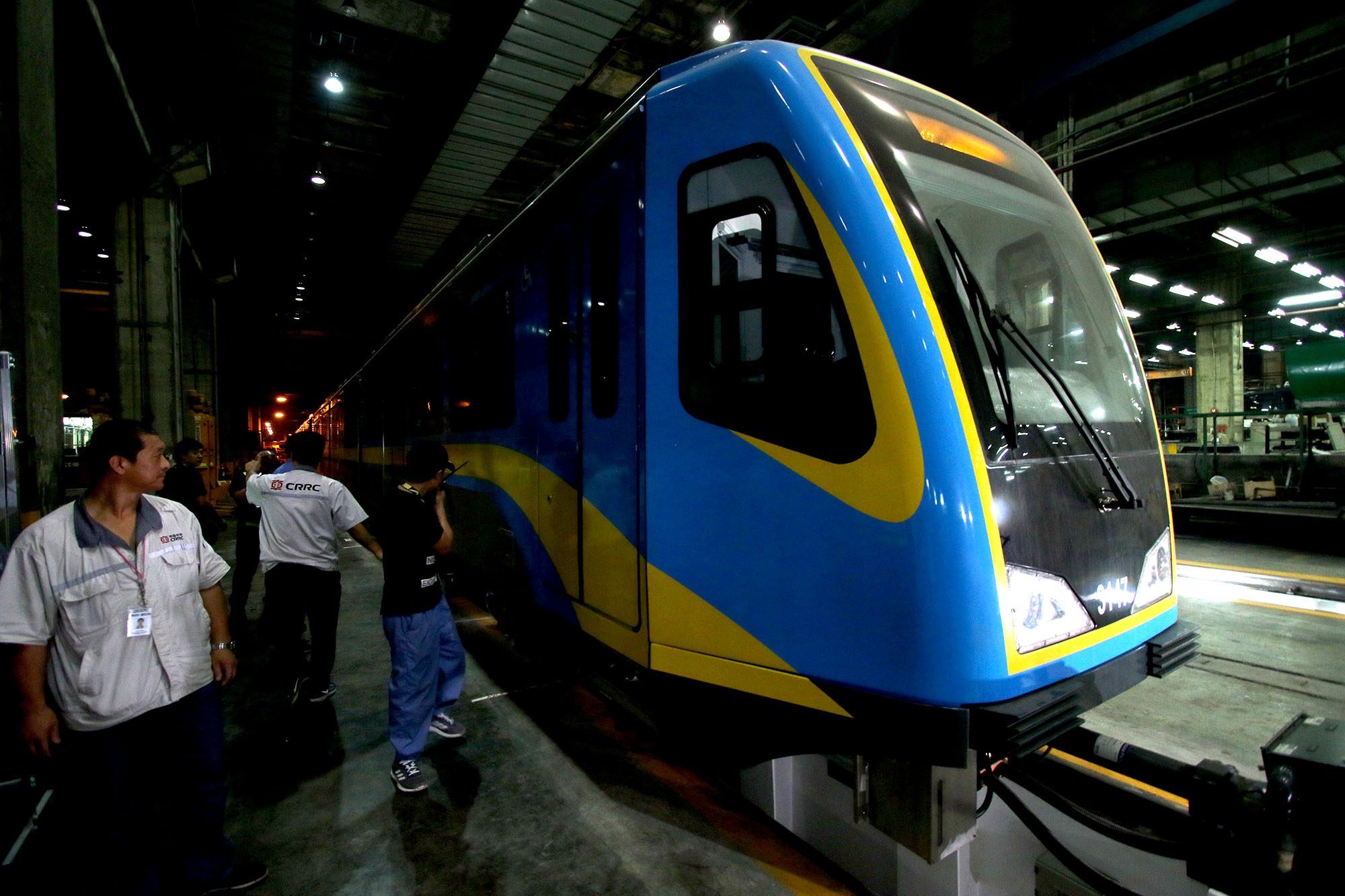SUMMARY
This is AI generated summarization, which may have errors. For context, always refer to the full article.

MANILA, Philippines – The Commission on Audit (COA), in its 2017 audit report, found China-based CRRC Dalian Company Limited owes the Department of Transportation (DOTr) P1.3 billion in liquidated damages.
Dalian is involved with the controversial 48 trains for the Metro Rail Transit Line 3 (MRT3) that were delivered in 2016, but were remained unused due to compatibility and weight issues.
Liquidated damages are imposed if a project proponent failed to complete the work on or before the target completion date, including any extension granted. COA said the requested extension by Dalian was not approved by the DOTr. The liquidated damages in this case, however, exceed the 10% limit of the P3.76-billion contract under the law.
COA said the DOTr should consider revoking its contract with Dalian.
“We reiterated and the [DOTr] agreed to impose liquidated damages on the delays of the contractor of Dalian…pursuant Clause 19 of the general conditions of the contract and consider exercising its option to rescind the Contract, if warranted,” state auditors said.
The new coaches were part of the MRT3 expansion project, which aimed to decongest the railway system and increase its capacity to serve over 800,000 passengers daily.
But as of December 31, 2017, COA said the project with Dalian was delayed 345 days due to glitches in the power supply, compatibility issues with the signalling system, and weight issues.
“As a result, long queues and overcrowding of passengers in [MRT3] stations were not cushioned, thus affecting the welfare of the riding public and contributing to the decline in passenger ridership,” COA said.
Transportation Secretary Arthur Tugade earlier said the Dalian trains could be used later this year, but have to be repaired.
According to him, Dalian had agreed to absorb all costs that come with the repair of trains, and will also provide the spare parts needed.
However, all these are still subject to a high-level meeting between the Philippine and Chinese governments in August, which will also discuss the MRT3 agreement with Dalian.
Decrease in rideship
State auditors also found a 20% decrease in passenger ridership from 176,058,278 per day in 2013 to 140,151,161 in 2017.
COA attributes this decline in ridership to the delayed MRT3 expansion project. (READ: Surviving MRT3: Worst train fails in 2017)
The report also noted that the MRT3 suffered from the most service interruptions last year at 81, with a record of 2,374 train removals and 463 incidents of passenger unloading. (READ: MRT woes: How often do they happen?)
The decrease in ridership led to lower revenue collections, COA said, which should be used to pay MRT3 equity rentals to MRT Corporation (MRTC) – an agreement the government entered in 1997 for a period of 25 years.
“[I]t is vital that the present MRT3 operations improve. Otherwise, a continued decline in passenger ridership and revenue collections would impact on the capacity of DOTr-MRT3 to self-finance the payment of its obligations to MRTC and demand a greater government subsidy,” COA said.
Under the 2017 General Appropriations Act, government subsidy for the mass transit account stood at P4.286 million.
‘Doubtful’ contract
COA also found “doubtful” legality in the contract with MRT3’s former maintenance service provider.
State auditors said that Busan Joint Venture (JV) “did not submit” a valid Joint Venture Agreement which resulted to the suspension of payments to Busan Universal Rail Incorporated (BURI) amounting to P978.25 million.
The contract was awarded to 5 different entities, instead of one, that represented itself as “Busan JV” – Busan Transportation Corporation, Edison Development and Construction, Tramat Mercantile Incoporated, TMICORP Incorporated, and Castan Corporation.
COA said they had asked past administration transportation officials to explain the said contract with Busan JV.
In November 2017, DOTr ended the contract with BURI in November, and filed a graft case against former transportation secretary Joseph Emilio Abaya and the company. In June, the Ombudsman indicted Abaya for graft.
Glitches got worse throughout the rest of 2017, and reached a record low of 6 running trains back in February.
The DOTr has since expressed commitment to improve the MRT3 situation. After a general maintenance service in late March, the railway operator was able to field at least 15 trains daily.
The MRT3, running from North Avenue to Taft Avenue, serves nearly 500,000 passengers daily – way beyond its capacity of 350,000. Passengers have long endured the inconvenience associated with riding the MRT3 – long lines, delays, and accidents. – Rappler.com
Add a comment
How does this make you feel?
There are no comments yet. Add your comment to start the conversation.